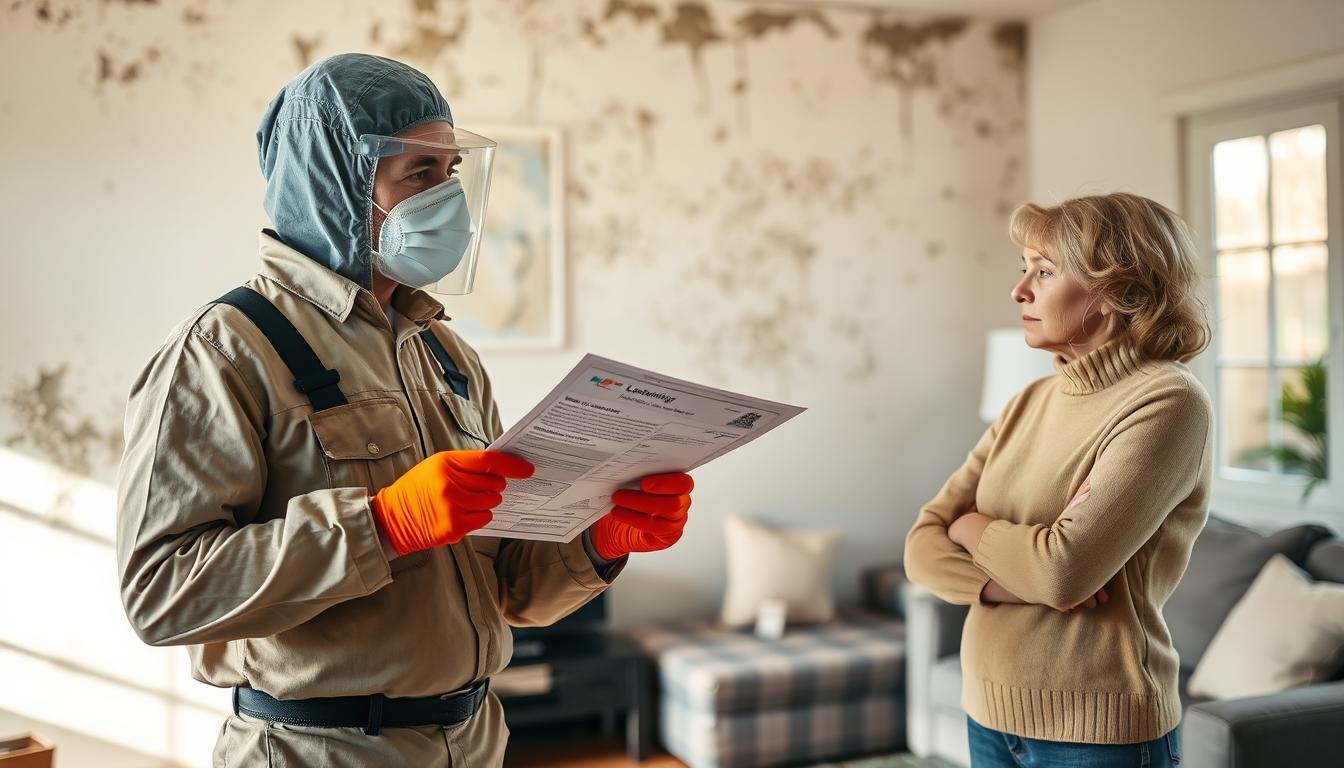Discovering mold in your home can be alarming, but hiring an unlicensed contractor to address the problem could make matters worse. Proper verification of mold contractor licensing isn’t just a formality—it’s essential protection against fraud, substandard work, and potential health risks. This comprehensive guide will walk you through the verification process, helping you ensure that the professionals you hire are properly qualified, insured, and compliant with state regulations.
Verifying proper licensing is the first step in hiring a qualified mold remediation contractor
Why Verifying Mold Contractor Licensing Matters
Mold remediation is a specialized field that requires proper training, equipment, and knowledge of safety protocols. Hiring a licensed contractor provides several important benefits:
- Ensures the contractor has met minimum training and qualification standards
- Provides recourse through state licensing boards if problems arise
- Confirms the contractor carries proper insurance and bonding
- Reduces risk of improper remediation that could worsen health issues
- Protects against fraudulent business practices
Don’t Risk Your Health and Home
Unqualified contractors may cause more harm than good. Always verify licensing before hiring.
Understanding State-Specific Licensing Requirements
Mold contractor licensing requirements vary significantly by state. Some states have specific mold remediation licenses, while others regulate the industry under general contractor or specialty licenses. Here’s what you need to know:
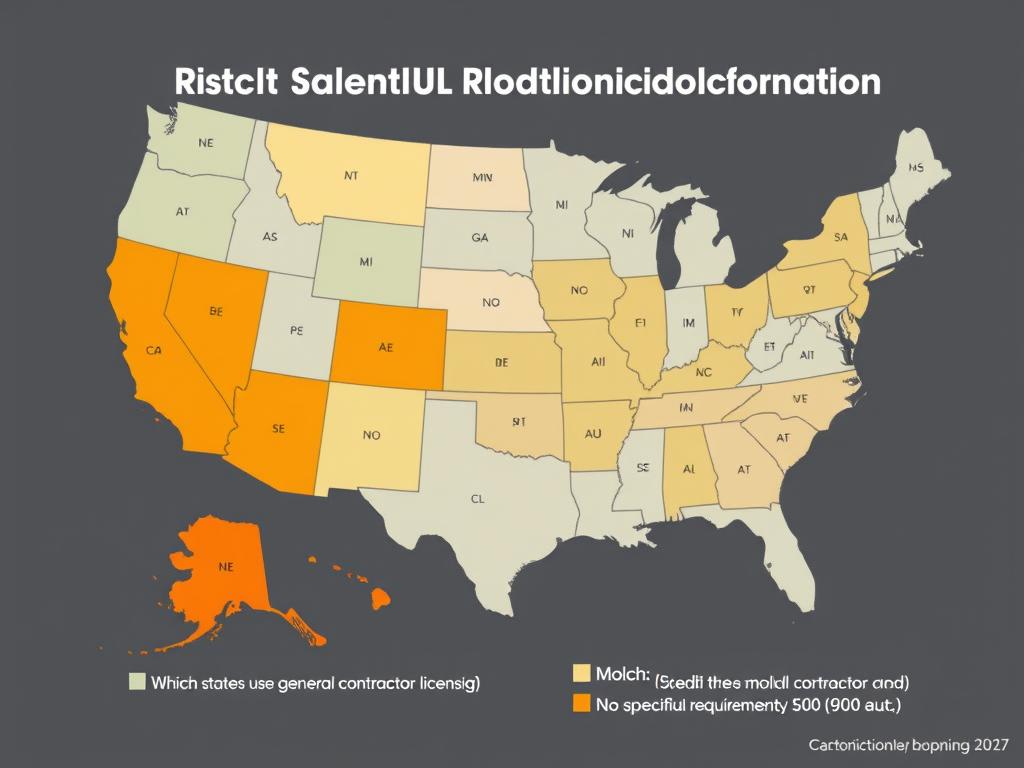
Mold licensing requirements vary by state – check your local regulations
States with Specific Mold Licensing
Several states have implemented specialized licensing programs specifically for mold assessment and remediation. These typically include:
| State | License Type | Verification Method | Renewal Period |
| New York | Mold Assessor, Mold Remediator | Online Database | 2 Years |
| Florida | Mold Assessor, Mold Remediator | DBPR Website | 2 Years |
| Texas | Mold Assessment, Remediation | DSHS Portal | 2 Years |
| Louisiana | Mold Remediation Contractor | State Board | 1 Year |
States Using General Contractor Licensing
Many states don’t have specific mold licensing but regulate the industry under general contractor licenses or specialty classifications. In these states, verify that the contractor holds the appropriate general license and has specific training in mold remediation.
Find Your State’s Requirements
Contact your state’s licensing board to understand local requirements for mold remediation contractors.
Step-by-Step Process to Verify Mold Contractor Licensing
Follow these steps to thoroughly verify a mold contractor’s credentials before hiring:
- Determine your state’s requirements – Contact your state’s contractor licensing board or department of health to understand specific licensing requirements for mold remediation in your area.
- Request license information – Ask the contractor for their license number, business name as registered, and the name under which the license is issued.
- Verify through official channels – Use your state’s online verification portal to confirm the license is valid and current.
- Check for complaints or violations – Many state databases include information about past complaints, violations, or disciplinary actions.
- Verify insurance coverage – Request proof of liability insurance and workers’ compensation coverage, then contact the insurance provider to confirm the policy is active.
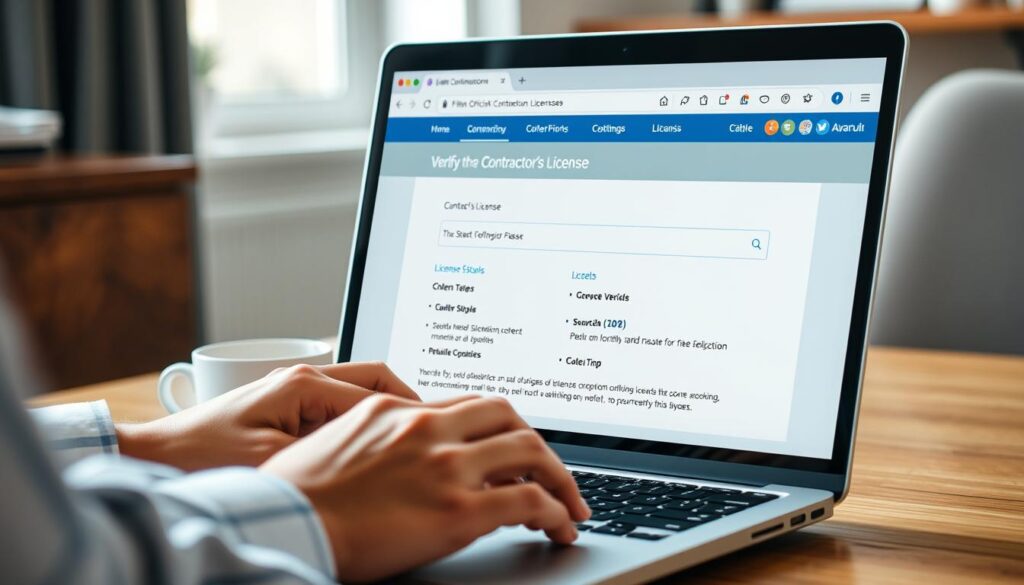
Most states offer online verification tools to check contractor licensing status
Online Verification Tools
Most states provide online databases where you can verify contractor licensing. You’ll typically need:
- Contractor’s license number
- Business name
- Owner’s name
The verification will show if the license is active, when it expires, and any history of complaints or violations.
Beyond Licensing: Additional Verification Steps
While licensing is crucial, it’s just one aspect of contractor verification. Take these additional steps to ensure you’re hiring a qualified professional:
Verify Insurance Coverage
Proper insurance protects both you and the contractor. Request and verify:
- General liability insurance (minimum $1,000,000)
- Workers’ compensation insurance
- Professional liability insurance
Contact the insurance provider directly to confirm coverage is current.
Check Professional Certifications
Industry certifications indicate specialized training:
- IICRC (Institute of Inspection Cleaning and Restoration Certification)
- ACAC (American Council for Accredited Certification)
- NORMI (National Organization of Remediators and Mold Inspectors)
Verify certifications through the issuing organization’s website.
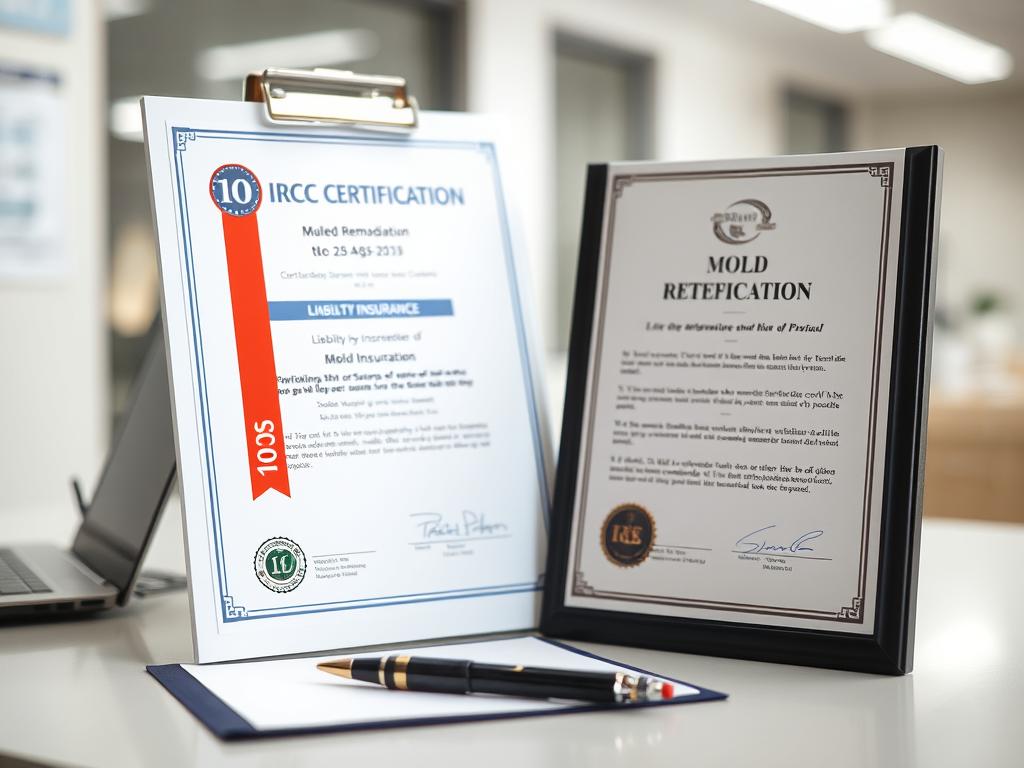
Verify both licensing and professional certifications before hiring a contractor
Review References and Past Work
Ask for and contact references from previous clients. Request before-and-after photos of past remediation projects. This provides insight into the contractor’s experience and quality of work.
“Proper verification goes beyond just checking a license number. Confirm insurance, certifications, and speak with past clients to get a complete picture of the contractor’s qualifications.”
Red Flags: Warning Signs of Unlicensed Contractors
Be alert to these warning signs that may indicate a contractor is unlicensed or unqualified:
Watch for these warning signs when hiring a mold remediation contractor
Common Warning Signs
- Reluctance to provide license information – Legitimate contractors will readily share their license numbers and credentials.
- No written contract – Professional contractors always provide detailed written agreements.
- Cash-only payments – Be wary of contractors who only accept cash or request large upfront payments.
- No physical address – Legitimate businesses have verifiable physical locations.
- Pressure tactics – Be cautious of contractors who pressure you to make immediate decisions.
- Unusually low bids – If a price seems too good to be true, it probably is.
Report Unlicensed Contractors
If you encounter an unlicensed contractor, report them to your state’s licensing board to protect others.
Frequently Asked Questions About Mold Contractor Licensing
What if my state doesn’t require specific mold licensing?
In states without specific mold licensing requirements, contractors may operate under general contractor licenses or specialty classifications. Look for contractors with relevant industry certifications like IICRC or ACAC, and verify they have proper training in mold remediation specifically.
How can I verify a contractor’s insurance coverage?
Ask the contractor for a certificate of insurance that lists their coverage types and limits. Contact the insurance provider directly using the policy number to verify the coverage is current and adequate. Legitimate contractors will not hesitate to provide this information.
Are online contractor reviews reliable for verification?
Online reviews can provide helpful insights but should not replace proper license verification. Reviews may be manipulated, and even well-reviewed contractors might not have proper licensing. Always verify credentials through official channels regardless of reviews.
What’s the difference between mold assessment and mold remediation licensing?
Many states separate these functions to prevent conflicts of interest. Mold assessors evaluate and identify mold problems, while remediation contractors perform the actual cleanup work. In some states, the same company cannot perform both services on the same project.
How often do contractors need to renew their mold licenses?
Renewal periods vary by state but typically range from 1-3 years. When verifying a license, check the expiration date to ensure it will remain valid throughout your project. Most state verification systems display this information prominently.

Don’t hesitate to ask questions about licensing and credentials
Mold Contractor Verification Checklist
Use this comprehensive checklist to ensure you’ve thoroughly verified a mold contractor’s credentials:
Complete Verification Checklist
- Verified state-specific licensing requirements
- Obtained contractor’s license number
- Confirmed license status through official state database
- Checked license expiration date
- Reviewed any complaints or violations on record
- Verified general liability insurance (minimum $1M coverage)
- Confirmed workers’ compensation insurance
- Verified professional certifications (IICRC, ACAC, etc.)
- Contacted references from previous clients
- Reviewed photos of past remediation projects
- Obtained detailed written estimate and scope of work
- Confirmed contractor will obtain necessary permits

A verification checklist helps ensure you don’t miss important steps
Protecting Your Home Through Proper Verification
Verifying mold contractor licensing is an essential step in protecting your home, health, and investment. By following the steps outlined in this guide, you can ensure you’re hiring qualified professionals who will safely and effectively address your mold issues.
Remember that proper verification goes beyond just checking a license number—it includes confirming insurance coverage, reviewing certifications, and researching the contractor’s reputation and past work. Taking the time to thoroughly verify credentials before hiring can save you from costly mistakes and potential health risks.
Ready to Verify Your Contractor?
Use your state’s official verification tools to check licensing status before hiring.
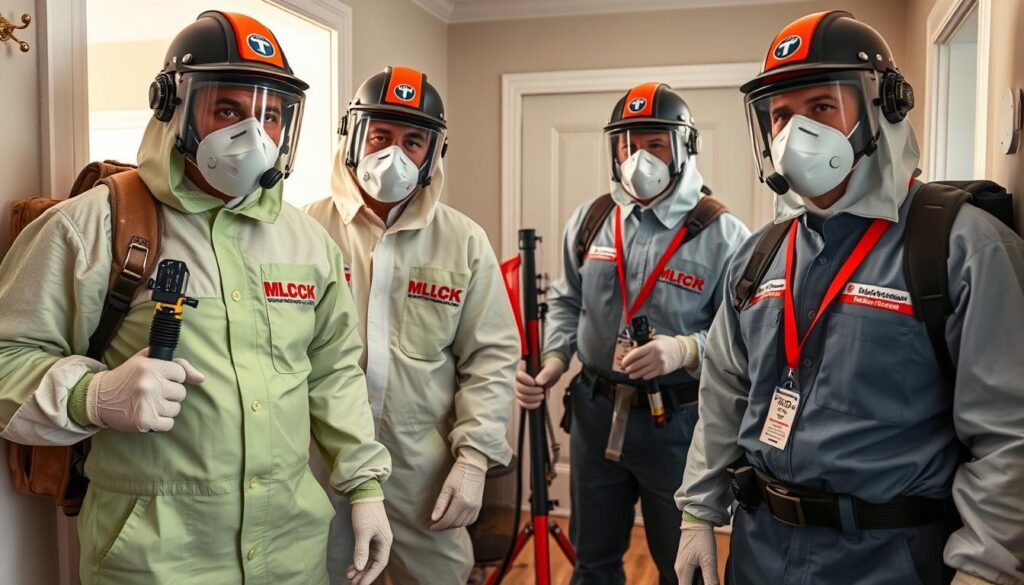
Licensed professionals have the training and equipment to safely remediate mold
